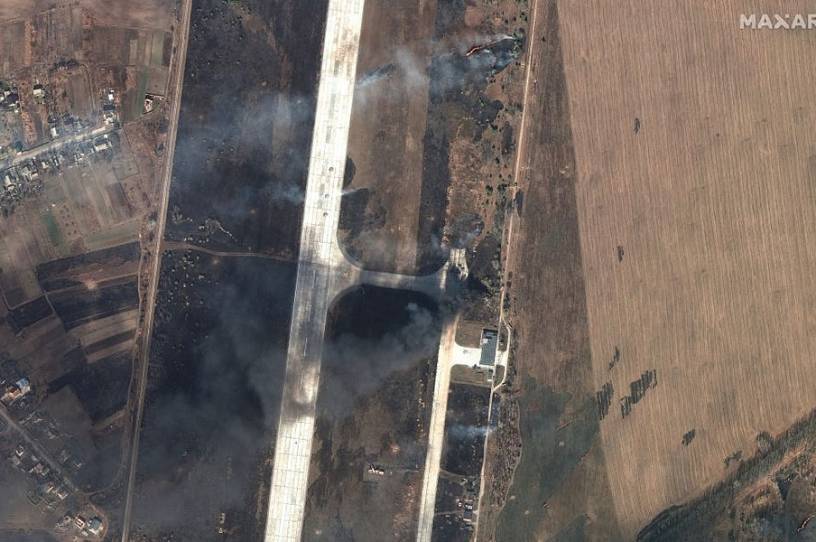Russia’s Propaganda Flop

Sometimes the Russians get ahead of themselves on the propaganda front. They have a history of publishing stories based on what is supposed to happen (according to schedule) which might not reflect the actual situation on the ground. The most amusing example came in 2014, when Russia and its proxies invaded Donetsk and Luhansk. The Russians really wanted to use close air support, but were not involved in the war officially, so they claimed that the “separatists” had captured the Luhansk airport and some attack aircraft there. (These could be used to mask the introduction of Russian aircraft.) Unfortunately for their plans, the Ukrainian defenders refused to give up the airport. Over and over again, Russian news would announce its capture and the beginning of air support, and again and again the Ukrainians would show that they still held the airport.
It looks like something similar happened again, and again it is driven by a failure to capture an airport. Veteran Russian propagandist Peter Akopov wrote a gushy article lauding victory over the Ukrainians that was accidentally published on the state news agency RIA Novosti a few days ago. The article was taken down, but not before it was archived and reposted on other websites (including an English translation on this website). In this now-deleted article, Akopov hails the reversal of the “terrible tragedy” of 1991 (the collapse of the USSR) and the resolution of the “Ukrainian question.” Ukraine, Akopov wrote, “will be reorganized, re-established and returned to its natural state as a part of the Russian world.” Ukraine would join some kind of union state or losers-alliance with Russia and Belarus.
It appears that Russia’s plan was to capture Hostomel airport late last week and fly in reinforcements and rapidly assault Kyiv and decapitate the Ukrainian government, but the Ukrainians took back the airport. Now Russian forces are boxed up in the suburbs northwest of the capital and the Russian army advancing elsewhere in Ukraine is experiencing supply problems and getting more resistance than anticipated. This war was probably supposed to be mostly over by now, but it drags on.
Akopov called the West’s attempt to “steal Russian lands” the “height of ingratitude” for Russia agreeing to German reunification. The “Anglo-Saxons who rule the West” are dragging Europe into a new confrontation with Russia, and if Germany and France are smart they will try to seek autonomy from their Western allies after the new world order is apparent. The Anglo-Saxons “need a controlled Europe” but that might change as the U.S. goes into self-isolation (the result of internal conflicts) or re-focuses on the pacific.
One thing that is totally absent from this essay is a direct mention of NATO or of NATO expansion. This “reason” for the conflict was everywhere in Western-facing propaganda put out by Russia and in the opinions of some Westerners before Putin’s invasion began, even if it was not the main theme of Russian-language propaganda. Now it’s possible there are other, unused propaganda op-eds that do address NATO, but it is interesting that Akopov did not mention it in the victory lap essay, instead proclaiming the end of “Anglo-Saxon” control of the West and harping on about the Russian empire and blood-and-soil guff.
Akopov mocked the very idea that Europeans ever believed that “Moscow would give up Kyiv.” Perhaps, rather than believing his own propaganda, he should have questioned whether the Ukrainians would give up their capital.